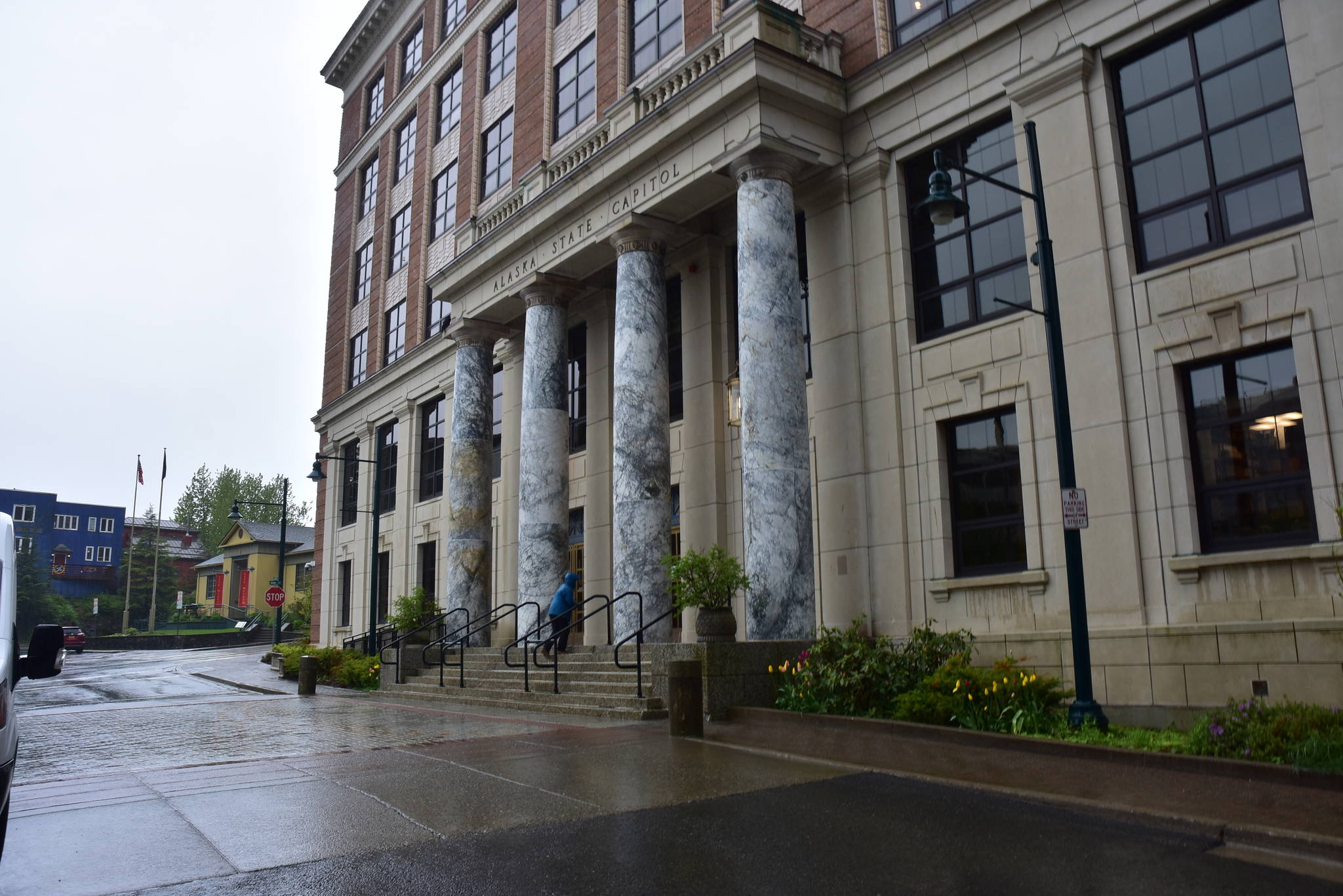By Rich Moniak
By signing the budget on Wednesday, Gov. Mike Dunleavy avoided a government shutdown. But just barely. And the great debate over a long-term fiscal plan that began in earnest five years ago hasn’t been settled.
However, legislators have agreed to form a bicameral working group to focus on that. Their work should begin by revisiting the taxes proposed in the sustainable budget plan developed by former Gov. Bill Walker. Because that remains the most credible attempt to solve the problem.
And all Dunleavy has ever offered is “trust me.”
More often than not, arguing over whether any politician can be trusted betrays the very idea of trust itself. Absent a close connection, at best it’s superficial. Like the Facebook “friends” we’ve never met.
Political credibility, on the other hand, is a matter of a politician’s ideas being realistic. And if not, their ability to admit being wrong.
Dunleavy fails on both counts.
As a member of the Senate Finance Committee in 2017, he developed his own fiscal solution. “For those who say you cannot get out of this without taxes and reconfiguration of the Permanent Fund Dividend,” Dunleavy said in an interview, “your cuts will be steeper, but you can get out of it.”
As reported, he estimated $1.1 billion in spending cuts spread out over four years. He claimed his math had “been checked by several people.”
While campaigning a year and a half later, he argued $450 million in cuts were needed. About $200 million would come from a “vacancy factor” that he defined as 2,000 state government positions that had been funded but never filled.
About the same time, he wrote that the fiscal deficit was less of a problem “to the health of our republic” than “a deficit of trust.” Alaskans, he said, “are leery of politicians who say one thing and do another.”
And just before submitting his first budget he said, “As your governor, I will always be honest with you.”
But the vacancy factor savings weren’t part of that budget. Because in reality, it represents a percentage of the total state workforce that’s purposely underfunded to offset the period of time vacancies exist after employees transfer or leave state government.
Another budget balancing trick Dunleavy tried was diverting municipal tax revenue from oil and gas properties to the state’s coffers. That would have forced local governments to raise taxes to fill the budget gap he created for them.
He claimed none of his cuts would impact state services to Alaskans. Then proceeded to slash the Alaska Marine Highway System budget. And veto the entire program that provided financial assistance to low-income seniors.
And his plan to retroactively pay Alaskans full PFDs never materialized because the Legislature recognized it would destroy the permanent fund he promised to protect.
Walker broke his tax and PFD campaign promises too. But he responded to gaping budget hole caused by the precipitous decline of oil revenue by first admitting he was wrong.
His course correction included a three-day conference in Fairbanks that was open to all interested citizens. The objective, as explained by his budget director, was to define the boundaries of “what’s acceptable and what’s off the table.” And help determine what Alaskans believed the “right size of government” should be.
Ideas offered during that exercise were vetted and refined after meeting with community groups all across the state. The six-month effort led to a plan to close “the budget gap within three years through a combination of spending cuts, structured and sustainable use of permanent fund earnings, and modest tax increases.”
In 2018, the Legislature acted on using a portion of the permanent fund to pay for state government. But Walker’s tax proposals were dead on arrival.
Those options deserve serious consideration now. Not only do some Republican legislators recognize that new tax revenue will be needed to sustain the reduced PFD payout Dunleavy proposed. His plan still leaves a huge budget deficit. He suggested bridging the gap this year with a one-time transfer of $3 billion from the permanent fund to the Constitutional Budget Reserve.
It would be foolish to go along with that idea. Especially when he wants us to trust that his fiscal smoke and mirrors can produce a balanced budget next year.
• Rich Moniak is a Juneau resident and retired civil engineer with more than 25 years of experience working in the public sector. Columns, My Turns and Letters to the Editor represent the view of the author, not the view of the Juneau Empire. Have something to say? Here’s how to submit a My Turn or letter.
Rich Moniak is a Juneau resident and retired civil engineer with more than 25 years of experience working in the public sector.

